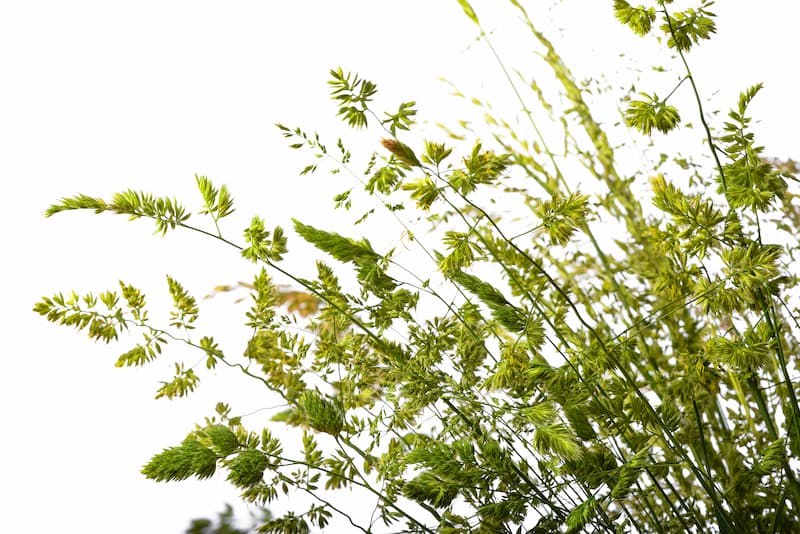How To Avoid Annoying Hay Fever Symptoms This Year

The sun is shining, the birds are singing, your dog is enjoying long walks in the park and your face feels like it’s melting? Welcome once again to the glory of hay fever season.
Hay fever is a common allergy that affects millions of us each year. It causes runny nose, sneezing, watery eyes, and congestion. While hay fever symptoms usually last for just a few days, they can sometimes linger for weeks.
While there’s no cure for hay fever, there are ways to manage it. The most effective treatment is prevention, here are some tips for braving the hay fever season;
What Is The Hay Fever Timeline?
Hay fever season usually lasts from April through October, although it can vary depending on where you live. The symptoms include sneezing, runny nose, watery eyes, and itchy skin. It’s caused by pollen particles entering the body through the airways.
Through the hay fever season there are a number of irritants that cause those nasty symptoms, you might be allergic to tree, weed or grass pollens which all occur at different times through the season.
It’s best to avoid outdoor activities during hay fever season if possible and try to avoid going outdoors when pollen counts are high.
If you suffer from hay fever, you may want to consider taking allergy medication. There are many different types available, and each has its own benefits and side effects.
When Is The Best Time To Take Your Hay Fever Medication?
Early is better when it comes to hay fever, if you suffer annually it’s worth taking your medication before the start of the season in early springtime. Either pop an alarm on to remind yourself, take it with your breakfast or take one during your morning skincare routine so you remember.
Your mileage may vary with the different anti-histamines on the market, it’s best to speak with a pharmacist about the best options but don’t be fooled by the branded medications. You can often get a suitable anti-histamine somewhere for boots for about 99p for a month’s supply!
Taking medication to relieve symptoms can be the best option, but it’s actually not always necessary.
One alternative is to try eating foods rich in vitamin C. Vitamin C has been shown to boost the immune system and decrease inflammation, both of which can help ease symptoms of hay fever. Try consuming citrus fruits, strawberries, broccoli, and other foods rich in vitamin C during hay fever season.
When To See Your Doctor Or Pharmacist About Hay Fever?
If the tablets that you’ve picked up at the chemist or supermarket don’t seem to be working and your still unable to pop outside without flaring up then it might be time to see advice from a professional. They’ll be able to let you know your options and help you solve your hay fever so you can enjoy the sun unimpeded.
What To Do When You’ve Had A Hay Fever Flare Up?
Anyone that has hay fever each year will know what it’s like to end up with a face that feels like it’s melting.
Absolutely every inch of you is itching, your nose and eyes are running and your throat and nose start to get really sore from all the sneezing. If you end up with an episode like this, here are our top tips:
- If you’ve been outside, strip off your clothing to go straight in the wash and then douse yourself under the shower, making sure to clean your hair.
- Keep all your windows closed, in the summer heat and sunshine it’s tempting to open them to the fresh warm air but you want to keep your house a contaminate free zone, pollen can easily come in through the window and then you may as well be outdoors.
- Drink lots of warm water with lemon and honey. These both have benefits for the body on normal days but they can be great when you’re having a flare up as well. The honey and lemon are wonderful for soothing a sore throat and if you’ve already taken your hay fever tablets for the day, the vitamin C in lemon also works as a natural antihistamine, any citrus fruit would be great here but lemon goes well with the honey in water!
- You might find that you end up with puffiness in the face after a flare up, this is because of the inflammation caused by the histamine that your body naturally produces. Be gentle with your skin after a flare up as it can be a little more delicate than usual, avoid heavy exfoliation for a couple of days and be gentle as your rubbing around your eyes and nostrils. Getting a facial is a great way to get rid of the puffy aftermath of hay fever and it can also help if you’ve got blocked sinuses!
We hope that the hay fever season passes you by without interrupting your fun in the sun!
If you’d like to book in for a treatment on the Cookham Road in Maidenhead, give the team a ring on 01628 298 040.
